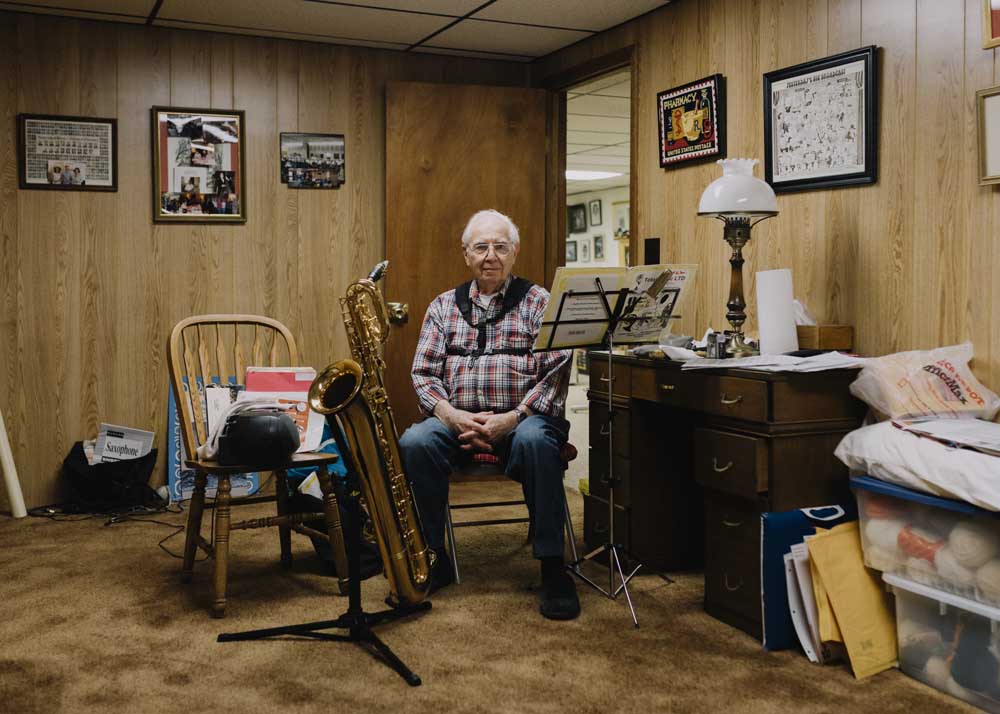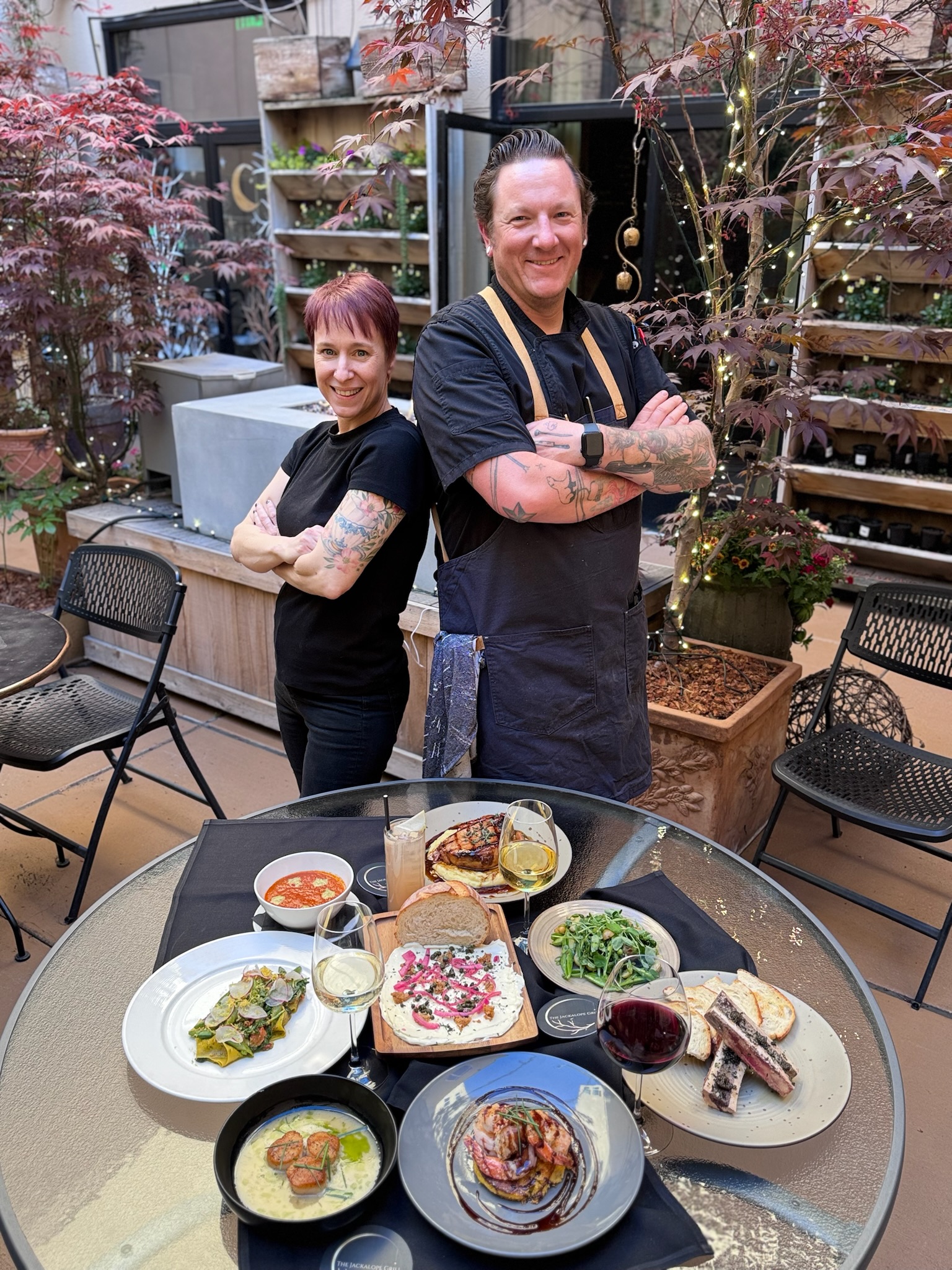Retirees turn to tunes in free time
Published 5:34 am Monday, February 6, 2017

- George Blinick, a retired pharmacist, practices with his saxophone for up to 90 minutes a day. Some retirees have found that mastering an instrument is rewarding both socially and mentally. “The New York Philharmonic is not going to hire me, but making sound with my instrument is a real delight,” Blinick said.(Lyndon French/The New York Times)
When Phyllis Lay starts playing her flute, the family cat gives her a dirty look and bolts from the room. Her husband follows close behind.
“I’m working on some high notes, and they are sort of screechy,” said Lay, 70, a former teacher in Tacoma, Washington. But, she said, “Sometimes it’s sort of nice to be by yourself when you’re practicing.”
Lay is part of a growing number of retirees who are returning to the instruments they played during childhood and then put aside, or who are taking up the piano, flute or horn for the first time.
The Brattleboro Music Center in Brattleboro, Vermont, has had a 10 percent increase in the last five years in students who are retirees, said Carol Compton, education program director at the music center’s school. “We’ve begun adding daytime programs in response to the interest of this demographic,” she said.
For those who relish the idea of self-improvement in retirement and have the time and financial stability to pursue a hobby, there are many options. Tennis? Gardening? Bridge? Book club?
But for some who have fond memories of conquering war horses like Beethoven’s “Fur Elise” or Schumann’s “The Happy Farmer,” the idea of picking up where they left off — or mastering a new musical skill — is appealing.
For Lay, who had a stroke two years ago that affected her right arm and hand, playing an instrument serves as physical and emotional therapy.
“I feel better when I accomplish something,” she said. “To do anything is an improvement over what I was capable of a few months back. When I get tense, I tell myself, ‘Wait until tomorrow, maybe I’ll be able to play the notes then.’”
The New Horizons International Music Association, a nonprofit program aimed primarily at adults older than 50 who want to play in a group, has 10,000 participants in 232 bands and orchestras around the country. And there are 44 more ensembles in the planning stages, said Roy Ernst, who founded the organization in 1991.
“We’ve had steady growth,” said Ernst, a professor emeritus at the Eastman School of Music in Rochester, New York. “There are people contacting us all the time.”
Many who join an ensemble or chorus view their participation as a chance to expand their social circle and feel part of a community that is creating art. “Often, older adults talk in detail about how they’ve always loved music and have gone to concerts,” said Alicia Andrews, assistant director of the Lucy Moses School at Kaufman Music Center in New York City. “And now, after retirement, they finally have time to participate themselves.”
Judy Fink played flute for three or four months in fourth grade, followed some years later by a brief flirtation with the guitar. “But I was a perfectionist, and you can’t be a perfectionist when you’re just learning,” said Fink, 63, a former elementary school teacher and program director at Stone Barns Center for School and Agriculture in Tarrytown, New York. “I always loved music, and my brothers and I went to classical concerts, but I didn’t understand it on an intellectual level. It was a puzzle I couldn’t solve.”
In her mid-40s, Fink took piano lessons for several years, but she lost momentum because her work schedule made evening practice sessions the only option. When she and her husband, Rob Freeberg — who happens to be a retired music teacher — moved to Dummerston, Vermont, from Briarcliff Manor, New York, four years ago, the time seemed right to try again. She’s taking private lessons and duet classes at the Brattleboro Music Center.
“What’s exciting about taking piano lessons now is that I can practice whenever I want,” said Fink, who added that her frequent attendance at concerts had been greatly enhanced by her new understanding of music theory.
As an audience member, “I give myself little assignments,” she said, “like listening for changes in the key signature within movements and seeing how that affects the mood of a piece.”
George Blinick, 89, had always wanted to play an instrument as a child, but the family budget didn’t accommodate music lessons. When he retired from his job as a pharmacist 21 years ago, he was determined to make up for lost time and joined a New Horizons band near his home in suburban Chicago.
Blinick had visions of being the next Harry James. “But when I was handed a trumpet and blew, nothing came out,” he said. “Then one of the instructors said, ‘Try this,’ and handed me an alto saxophone. I blew, and out came a note.”
Blinick has since switched to the baritone sax. He practices diligently for 60 to 90 minutes per day and has a repertoire that stretches from Joseph Haydn to Buddy Holly. “The New York Philharmonic is not going to hire me,” he said, “but making sound with my instrument is a real delight.”
It may also be good for the brain, said Denise Park, director of research at the Center for Vital Longevity at the University of Texas at Dallas. “A lot more research needs to be done,” Park said. “But there’s the sense that tasks that are mentally demanding support and maintain cognition in older adults.”
Some retirees say that their fingers don’t move over the keys or across the strings as deftly as they would like — and perhaps it isn’t as easy to memorize a sonata as it once was. But there are ways in which age, far from being a hindrance, is an advantage.
“You know more about yourself as a learner than you did at 5, 6 or 7,” said Andrews of the Lucy Moses School. You know, for example, whether you find it more helpful to have things written down rather than hearing them (or vice versa), and whether you’re a big-picture person or more detail-oriented. And you know what you need in the way of feedback.
Consequently, “many of our adults know what to share with their teacher to create the best lesson environment,” Andrews said.
Older adults may also be more forgiving of themselves than they once were — and more tolerant of a wrong note (or six). Fink said that now, unlike in her earlier tour of duty at the piano, she has realistic expectations and appropriate goals. “I’m a lot more patient with myself now,” she said. “If I get frustrated, I don’t push myself. I know when to stop.”
Laura Leinberger played the piano as a child, but she decided after a career in operations management that she wanted a more collaborative musical experience in retirement. Accordingly, she began taking vocal classes and subsequently joined the Oratorio Society of New Jersey — she’s an alto — and has been learning the intricacies of singing duets and four-part harmonies.
“I was used to being a top student, but I’m at a point where I am willing to take the risk of being the worst in the class,” Leinberger, 72, said. “It doesn’t matter to me. The other chorus members are half my age or more, but they’re very accepting. And every semester my range and volume are better.”






